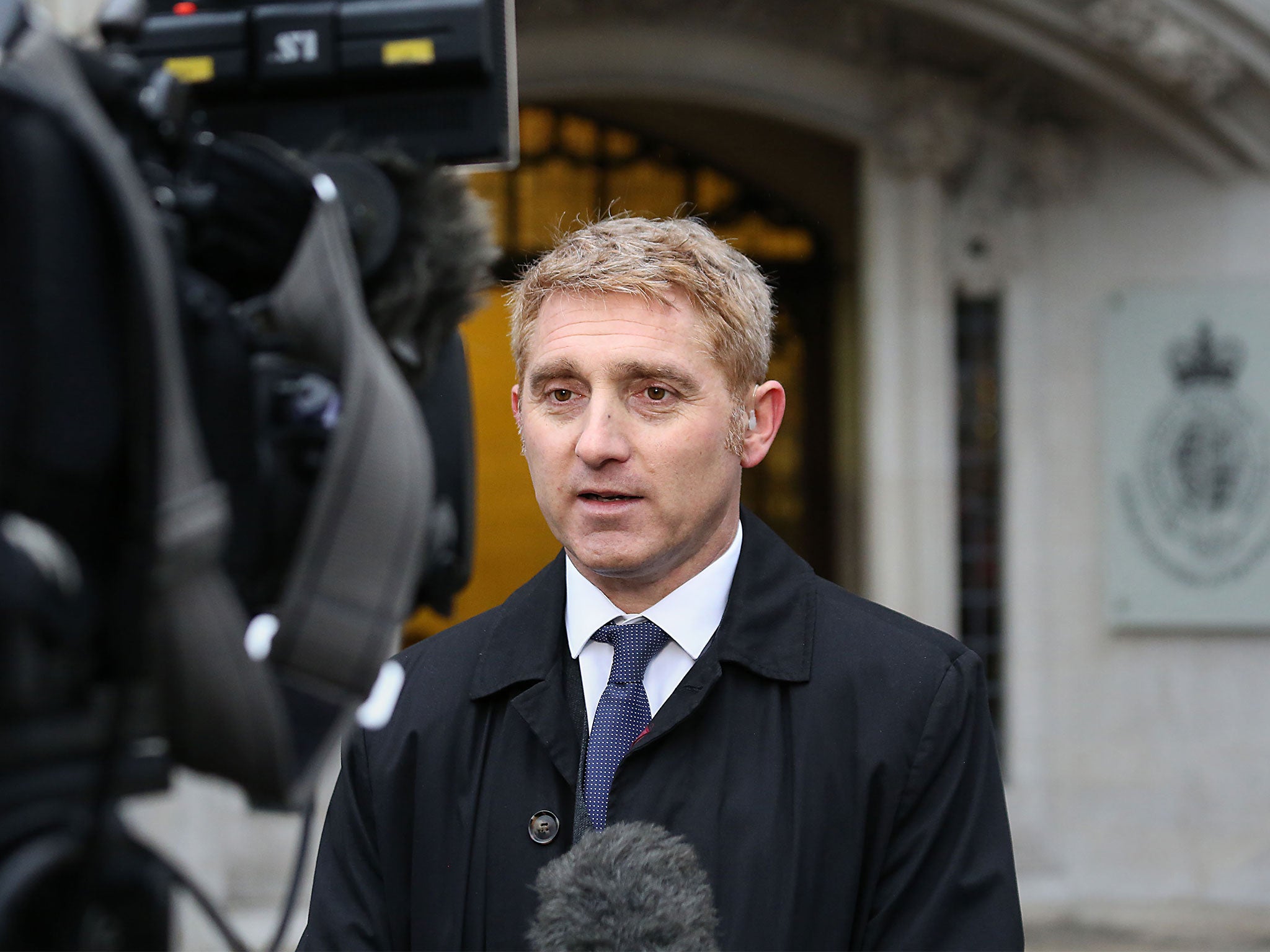Term-time holidays must be made illegal, Supreme Court told
Term-time holiday father Jon Platt is taken to Supreme Court as Isle of Wight Council seeks to overturn a landmark ruling in his favour

Your support helps us to tell the story
From reproductive rights to climate change to Big Tech, The Independent is on the ground when the story is developing. Whether it's investigating the financials of Elon Musk's pro-Trump PAC or producing our latest documentary, 'The A Word', which shines a light on the American women fighting for reproductive rights, we know how important it is to parse out the facts from the messaging.
At such a critical moment in US history, we need reporters on the ground. Your donation allows us to keep sending journalists to speak to both sides of the story.
The Independent is trusted by Americans across the entire political spectrum. And unlike many other quality news outlets, we choose not to lock Americans out of our reporting and analysis with paywalls. We believe quality journalism should be available to everyone, paid for by those who can afford it.
Your support makes all the difference.Taking a child on holiday for seven consecutive days during term time without a school's permission cannot on any view be lawful, a QC for education chiefs has told the Supreme Court.
The submission was made during a Supreme Court hearing brought by Isle of Wight council on Tuesday.
The local education authority is seeking to overturn a High Court ruling in May last year clearing Jon Platt of failing to ensure his daughter’s regular attendance at school.
The father of three was fined £60 in April 2015, after her Isle of Wight school refused permission for seven days of absence.
Refusing to pay the fine, Mr Platt’s charge doubled to £120, and he quickly became embroiled in a row with his local council.
The matter was taken to the Isle of Wight Magistrate’s Court in October that year, where Mr Platt won his case, but the local authority appealed the decision to the High Court.
Lord Justice Lloyd Jones and Mrs Justice Thirlwall dismissed the council's challenge in May 2015, ruling that the magistrates had not “erred in law” when reaching their initial decision.
The two judges said the magistrates were right to take into account the “wider picture” of Mr Platt's daughter's regular attendance record when they decided he had “no case to answer”.
Mr Platt’s victory was hailed as a “triumph of common sense”, with many suggesting the case would pave the way for other families choosing to take their children out of school during term times.
On Tuesday, he reappeared in court for a one-day hearing after Isle of Wight council appealed the High Court decision.
The key legal issue discussed by five justices in the court is whether or not Mr Platt committed an offence by failing to ensure that his daughter “attended school regularly”, as required by the 1996 Education Act.
Lord Justice Lloyd Jones and Mrs Justice Thirlwall said the magistrates rightly took into account the “wider picture” of the child's attendance record, including the period outside the dates of the Florida holiday.
Martin Chamberlain QC, appearing for the council, argued that the High Court had taken a wrong approach and regular attendance meant pupils had to be in class “at all times when required by the school rules”.
Mr Chamberlain added that, in any event, “absence for seven consecutive days cannot on any view be regular attendance”.
Mr Plat, whose Supreme Court case has been secured using legal aid, said the council was spending huge amounts of taxpayers' money into fighting him, which would allow the Government to 'criminalise' millions of parents.
Following Lord Justice Lloyd Jones and Ms Justice Thirlwall’s ruling last year, councils reported a surge in the number of term-time holidays being booked in England.
The debate first came about after the Government ordered a crackdown on unauthorised school absences in 2013.
Until that point, headteachers were able to use their discretion to allow parents to take children out of school for up to 10 days per year.
But new rules from the Department for Education (DfE) now states headteachers must only authorise absences in “exceptional circumstances” such as funerals.
If parents break the rules, the local council can issue a fine of £60, which doubles if it remains unpaid after 21 days.
Parents argue that vacations in peak holiday periods are up to four times more expensive, however, costing the typical family the equivalent of £1,771 extra per trip.
Since the landmark case was won last year, some 35 local councils in England have changed their policy on fining parents, according to a BBC investigation.
A further five are reviewing their policy, while 28 have withdrawn fines imposed on parents.
The Department for Education has told parents that their children missing just a few days in the classroom can damage GCSE results.
A DfE spokesperson said: “Our position remains that children should not be taken out of school without good reason.
”That is why we have tightened the rules and are supporting schools and local authorities to use their powers to tackle unauthorised absence.“
A verdict is expected at a later date.
Join our commenting forum
Join thought-provoking conversations, follow other Independent readers and see their replies
Comments